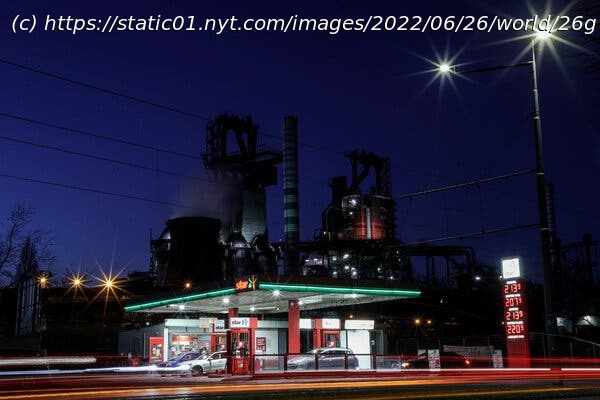As leaders of the Group of 7 gather in Germany, the scramble to replace Russian fossil fuels is raising concerns that hard-won climate targets will be missed.
Russia’s invasion of Ukraine seemed like an unexpected opportunity for environmentalists, who had struggled to focus the world’s attention on the kind of energy independence that renewable resources can offer. With the West trying to wean itself from Russian oil and gas, the argument for solar and wind power seemed stronger than ever. But four months into the war, the scramble to replace Russian fossil fuels has triggered the exact opposite. As the heads of the Group of 7 industrialized nations gather in the Bavarian Alps for a meeting that was supposed to cement their commitment to the fight against climate change, fossil fuels are having a wartime resurgence, with the leaders more focused on bringing down the price of oil and gas than immediately reducing their emissions. Nations are reversing plans to stop burning coal. They are scrambling for more oil and are committing billions to building terminals for liquefied natural gas, known as L.N.G. Fossil fuel companies, long on the defensive, are capitalizing on energy security anxieties and lobbying hard for long-term infrastructure investments that risk derailing international climate targets agreed to only last year.
“That’s the battle we’re in right now,” said Jennifer Morgan, the ambassador at large for climate change in the German Foreign Ministry and a former president of Greenpeace International. “We’re in a moment of massive disruption due to the invasion, and that’s either a big risk or it’s a big opening on the climate.”
The leaders of the Group of 7 nations, including the United States and Germany, have found themselves squeezed between ambitious goals to wean themselves from fossil fuels and immediate political and economic pressures driven by the war. Those more immediate concerns will dominate much of the agenda in Bavaria, as leaders search for ways to soothe the war-inflicted spike in energy costs that has contributed to rapid global inflation and to secure supplies for the immediate future. In a clear turnabout, Germany is lobbying fellow Group of 7 countries to scrap a joint commitment to ban public investment in overseas fossil fuel projects by the end of this year. If member states agree, it would not only make it harder to persuade the rest of the world to cut emissions and invest in renewable energy, but also endanger the declared goal of limiting global warming to 1.5 degrees Celsius, analysts warn. Another proposal that has gained steam in recent days and is expected to feature at the summit is a price cap on Russian oil, allowing European countries to import it, but only at an artificially low price. That could help lower oil and gasoline prices worldwide and reduce the energy revenues underwriting President Vladimir V. Putin’s war efforts in Ukraine. It could also encourage more Russian oil production. An architect of the idea, Janet L. Yellen, the U.S. Treasury secretary, has privately been telling foreign leaders that imposing the so-called price cap on Russian oil sales to Europe would be the single best thing those leaders could do right now to minimize the chances of a global recession, according to people familiar with the conversations.






